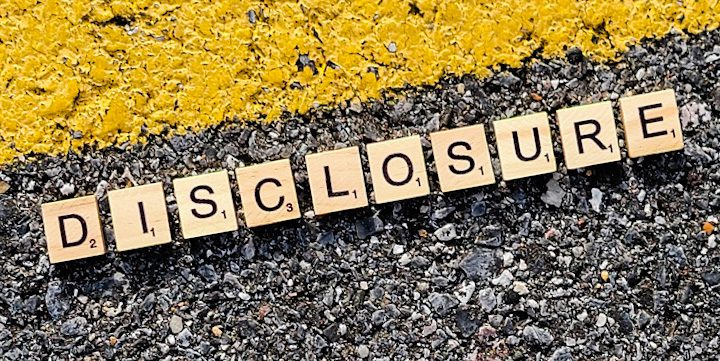View by Topic
Recent Articles
-
Appeals Court Finds Climate Change is Not JusticiableSaturday, May 11th, 2024
-
Colorado Building Energy Performance Standards (BEPS) Laws ChallengedSaturday, May 4th, 2024
-
New Environmental Laws from the 2024 Maryland Legislative SessionSaturday, April 27th, 2024
-
EPA Designates PFOA and PFOS as Hazardous Substances under Superfund LawSaturday, April 20th, 2024
-
Federal Government Finalizes New Efficiency Standards for LightbulbsSaturday, April 13th, 2024
View by Month/Year
“Green Building Law Update” Headlines
Recent Articles & News from
Stuart Kaplow’s blog
at GreenBuildingLawUpdate.com
- Does Federal EPCA Trump Colorado Building Energy Performance Standards (BEPS)? May 5, 2024
- New Environmental Laws in Maryland: 2024 Brings Opportunities for Businesses April 28, 2024
- EPA Takes Action: PFOA and PFOS Now Hazardous Substances Under Superfund Law April 21, 2024
- Shedding Light on the Future: The Evolution of Lightbulbs in the Wake of New Energy Efficiency Standards April 14, 2024
Subscribe to the Green Building Law Update!
Stuart Kaplow brings his expertise and extensive experience to the table with his unique digital publication, "Green Building Law Update". Subscribers receive regular updates to keep them informed about important issues surrounding Environmental Law, Green Building & Real Estate Law, as well as the emerging demand for Environmental Social Governance (ESG).
Get fresh content through the lense of Stuart Kaplow's cutting-edge expertise, innovative commentary and insider perspective. Don't miss another issue! Subscribe below.

SEC Longstanding Disclosure Related to Climate Change Remains
Whilst much of the popular media is all but obsessed with the March 21, 2022, U.S. Securities and Exchange Commission proposed ESG Rules to Enhance and Standardize Climate-Related Disclosures that will among other matters require companies for the first time to disclose greenhouse gas emission data, we continue to work with companies in complying with the SEC’s existing disclosure requirements as they apply to climate change.
Depending upon business specific circumstances, information related to climate change related risks and opportunities may be required in disclosures of a company’s regulatory mandated description of its business, legal proceedings, risk factors, and management’s discussion and analysis of financial condition and results of operations.
We have since its issuance more than a decade ago, assisted companies, including their counsel and auditors, in complying with the SEC’s 2010 Guidance Regarding Disclosure Related to Climate Change, Release No. 33-9106.
Some of the terminology has evolved, but the mandatory disclosures in the 2010 Climate Change Guidance remain the same:
- the impact of pending or existing climate change related legislation, regulations, and international accords;
- the indirect consequences of regulation or business trends; and
- the physical impacts of climate change.
Companies also must disclose, in addition to the information expressly required by SEC regulation, “such further material information, if any, as may be necessary to make the required statements, in light of the circumstances under which they are made, not misleading.”
SEC staff, in reviewing nearly 7,000 annual reports submitted in 2019 and 2020, found that a third included some disclosure related to climate change risk (where presumably after consideration the other two-thirds concluded there was no material climate change risk requiring disclosure). However, we wrote in a blog post last year, how, as a result of climate change becoming a topic of intense public discussion, in the last 2 years, without any change in law or regulation there has been, A Sea Change in SEC Climate Change Disclosure, with larger numbers of companies choosing to articulate matters of climate change.
This year, a new and polemic issue we are addressing with companies is that they have provided more expansive disclosures in ESG related statements, including in corporate social responsibility reporting (.. yes, many companies still issue CSR reports) than provided in SEC filings. Today, a company needs to give consideration to providing the same type of climate related disclosure in their SEC filings as they make in public facing statements about ESG.
The risk from climate change may not have changed dramatically, but we see alterations in how companies disclose the material effects of transition risks related to climate change such as policy and regulatory changes (e.g., Maryland’s statute requiring greenhouse gas emission reductions) that could impose operational and compliance burdens, market trends that may alter business opportunities, credit risks, and technological changes.
Admittedly in the more than 12 years we have done this work we had not in the past spent the amount of effort we now expend assisting companies discuss, and to the extent material, disclose the direct and indirect consequences of climate related regulation or business trends, such as:
- decreased demand for goods or services that produce significant greenhouse gas emissions or are related to carbon-based energy sources;
- increased demand for goods that result in lower emissions than competing products;
- increased competition to develop innovative new products that result in lower emissions;
- increased demand for generation and transmission of energy from alternative energy sources; and
- any anticipated reputational risks resulting from operations or products that produce material greenhouse gas emissions.
Moreover, we now work with companies to quantify material increased compliance costs related to climate change. And while that subject can run the gamut, it can include, if material, federal and state laws required disclosures about a company’s purchase or sale of carbon credits or offsets, including RECs from solar panel installations or the commitment to purchase green power and any material effects that may have on business, financial condition, and operations.
In this season when many companies are beginning to finalize annual reports, we are working not only with public companies that are required to publish 10-Ks, that must always take into consideration the ESG disclosures that have been made public, but also by a wide variety of other business (including increasing numbers of non-profits) that make yearly reports to stakeholders.
We, of course, await the final SEC regulations arising from the Commission’s March 21, 2022, proposal, but today we continue to offer comprehensive stakeholder solutions, including as we have for more than a decade offering strategic counsel assisting companies in satisfying their climate change disclosure obligations under the federal and state securities laws and regulations.









